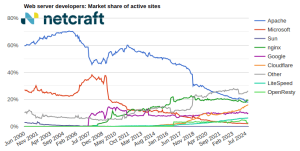Every computer using internet on them requires an IP address (Internet Protocol). Computers use these IP addresses to communicate with each other on internet. A static IP address is the number usually in form of dotted squad which is provided to the computer by an internet service provider to be its permanent address on internet. All the communication that takes place on internet is possible through these Internet Protocol addresses. However, not every computer requires a static/permanent IP to use the internet. There are dynamic Internet Protocol addresses for those using internet temporarily. Dynamic Internet Protocol addresses are required because not all users can have static IP for their computers exclusively. The temporary IPs help the user to use internet without actually using a limited static IP.
For those using dedicated servers for their online business it is possible to work on both static as well as dynamic IP addresses. But a dedicated server that comes equipped with static IP address is more beneficial for the user. A static Internet Protocol is a numerical ID for computers that never changes whereas a dynamic IP changes in every session of internet usage on computers. This changing IPs are an easy target for spammers. They take advantage of the chaos created by dynamic IPs in dedicated hosting. A lot of mishaps can be created and ones deeds can blacklist all the users of shared IP which is not good for business in any way. Also when one has invested so much one would like to stay away from problems like these.
Those who are interested in resellers account have an added advantage from static IP address. They don’t need many dynamic IP addresses for various domain names created. Also buyers of the resellers account might also be not interested in buying an account with dynamic IP when they can easily get a static one elsewhere. Having a static IP definitely increases the reliability of your reseller account.
Last but not the least, selling a dedicated server with static IP address is much easier if the decision is made to sell the account at a later date.




